Simulation Standard Technical Journal
A Journal for Process and Device Engineers
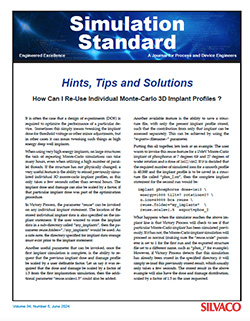
How Can I Re-Use Individual Monte-Carlo 3D Implant Profiles?
It is often the case that a design of experiments (DOE) is required to optimize the performance of a particular device. Sometimes this simply means tweaking the implant dose for threshold voltage or other minor adjustments, but in other cases it can mean tweaking such things as high energy deep well implants.
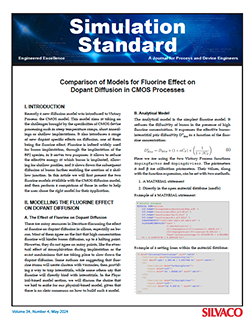
Comparison of Models for Fluorine Effect on Dopant Diffusion in CMOS Processes
Recently a new diffusion model was introduced to Victory Process: the CMOS model. This model aims at taking on the challenges brought by the specificities of CMOS device processing such as steep temperature ramps, short annealings or shallow implantations.
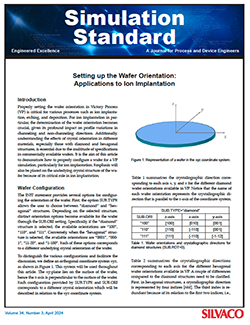
Setting up the Wafer Orientation: Applications to Ion Implantation
Properly setting the wafer orientation in Victory Process (VP) is critical for various processes such as ion implantation, etching, and deposition. For ion implantation in particular, the determination of the wafer orientation becomes crucial, given its profound impact on profile variations in channeling and non-channeling directions.
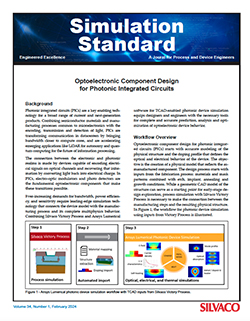
Optoelectronic Component Design for Photonic Integrated Circuits
Photonic integrated circuits (PICs) are a key enabling technology for a broad range of current and next-generation products. Combining semiconductor materials and manufacturing processes common to microelectronics with the encoding, transmission and detection of light, PICs are transforming communication in datacenters by bringing bandwidth closer to compute cores, and are accelerating emerging applications like LiDAR for autonomy and quantum computing for the future of information processing.
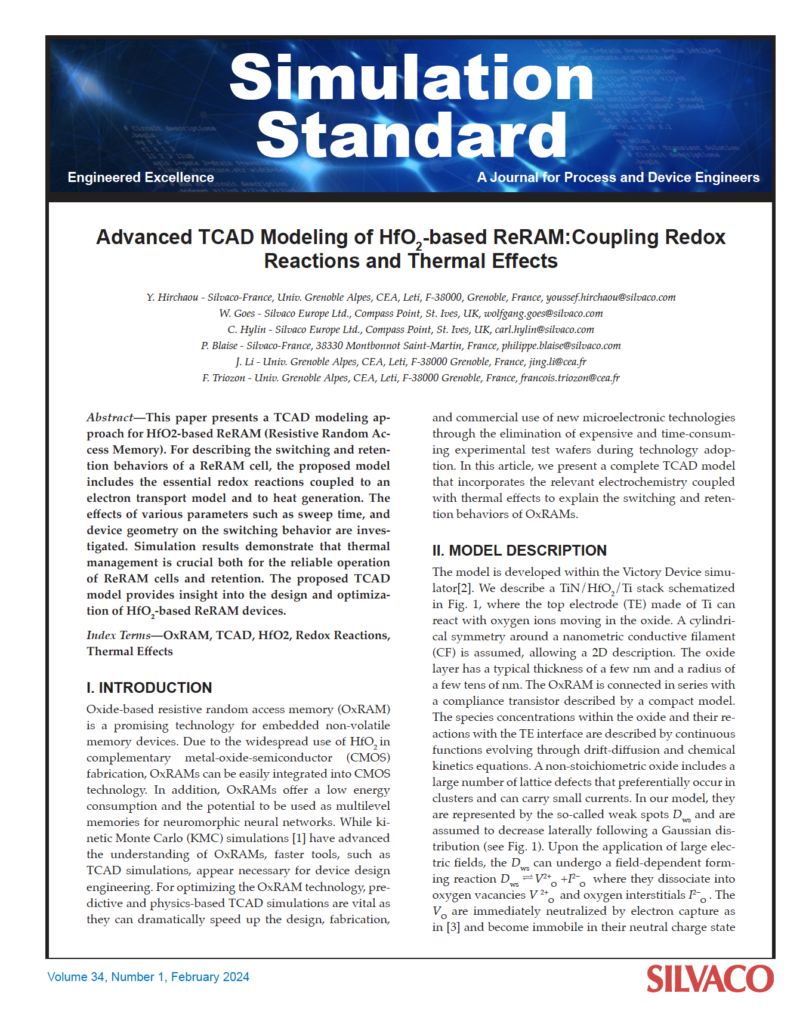
Advanced TCAD Modeling of HfO2-based ReRAM: Coupling Redox Reactions and Thermal Effects
This paper presents a TCAD modeling approach for HfO2-based ReRAM (Resistive Random Access Memory). For describing the switching and retention behaviors of a ReRAM cell, the proposed model includes the essential redox reactions coupled to an electron transport model and to heat generation. The effects of various parameters such as sweep time, and device geometry on the switching behavior are investigated. Simulation results demonstrate that thermal management is crucial both for the reliable operation of ReRAM cells and retention. The proposed TCAD model provides insight into the design and optimization of HfO2-based ReRAM devices.
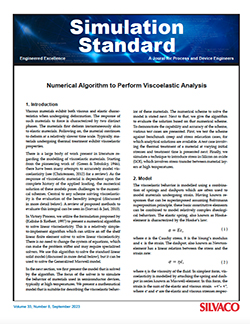
Numerical Algorithm to Perform Viscoelastic Analysis
Numerical Algorithm to Perform Viscoelastic Analysis Viscous materials exhibit both viscous and elastic characteristics when undergoing deformation. The response of such materials to force is characterized by two distinct phases. The materials first deform instantaneously akin to elastic materials. Following on, the material continues to deform at a relatively slower time scale. Typically, materials undergoing thermal treatment exhibit viscoelastic properties.

